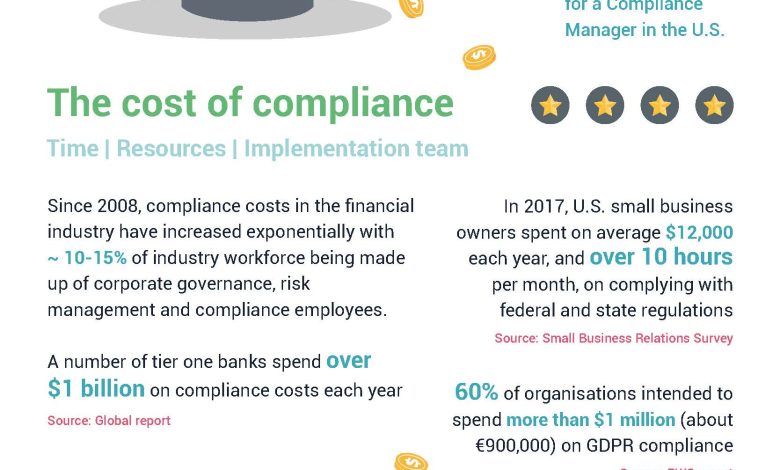The Importance of Keeping Up with Regulatory Changes

- Understanding the impact of regulatory changes on businesses
- The consequences of failing to comply with new regulations
- Strategies for staying informed about regulatory updates
- How regulatory changes can affect industry standards
- The role of technology in managing regulatory compliance
- Benefits of proactive approach to regulatory changes
Understanding the impact of regulatory changes on businesses
Understanding the impact of regulatory changes on businesses is crucial for their success and sustainability. Regulations are rules set by governing bodies that dictate how businesses operate in various industries. These changes can affect everything from pricing strategies to product development and marketing tactics. By staying informed about regulatory changes, businesses can adapt their practices to remain compliant and competitive in the market.
One of the key ways regulatory changes impact businesses is through increased compliance costs. When regulations change, businesses may need to invest in new technology, training, or processes to meet the new requirements. This can put a strain on resources and affect profitability. Additionally, non-compliance can result in fines, legal action, or damage to a company’s reputation, all of which can have long-term consequences.
Regulatory changes can also create opportunities for businesses. For example, new regulations may create a demand for innovative products or services that address specific compliance issues. By staying ahead of regulatory changes, businesses can position themselves as industry leaders and gain a competitive advantage. Adapting to regulatory changes can also help businesses build trust with customers and stakeholders, demonstrating a commitment to ethical practices and social responsibility.
The consequences of failing to comply with new regulations
Failing to comply with new regulations can have serious consequences for businesses. Ignoring regulatory changes can result in hefty fines, legal action, and damage to a company’s reputation. Non-compliance may also lead to loss of customers, decreased revenue, and even closure of the business.
In addition, failing to keep up with regulatory changes can hinder a company’s ability to compete in the market. Companies that do not adhere to new regulations may fall behind their competitors who are compliant, losing out on potential opportunities for growth and expansion. This can ultimately impact the overall success and sustainability of the business.
Furthermore, non-compliance with regulations can also lead to a lack of trust from stakeholders, including investors, partners, and employees. When a company is not following the rules set forth by regulatory bodies, it raises concerns about the company’s integrity and commitment to ethical business practices. This can result in a loss of support from key stakeholders, making it more difficult for the company to operate effectively.
Overall, failing to comply with new regulations can have far-reaching consequences for businesses of all sizes. It is essential for companies to stay informed about regulatory changes and take the necessary steps to ensure compliance in order to avoid these negative outcomes. By staying proactive and adapting to new regulations, businesses can protect themselves from potential risks and maintain a strong position in the market.
Strategies for staying informed about regulatory updates
Staying informed about regulatory updates is crucial for businesses to ensure compliance and avoid potential penalties. Here are some strategies to help you stay up-to-date:
- Subscribe to industry newsletters and publications to receive regular updates on regulatory changes.
- Attend conferences, webinars, and seminars where experts discuss the latest regulatory developments.
- Join industry associations and forums to network with peers and stay informed about best practices.
- Utilize online resources such as government websites and regulatory databases to access the most current information.
- Consult with legal and compliance professionals to get expert advice on interpreting and implementing regulatory updates.
By following these strategies, you can proactively monitor regulatory changes and adapt your business practices accordingly to stay compliant and competitive in your industry.
How regulatory changes can affect industry standards
Regulatory changes can have a significant impact on industry standards. When regulations are updated or modified, it is essential for businesses to stay informed and adapt accordingly. Failure to comply with new regulations can result in fines, penalties, or even legal action.
One way regulatory changes can affect industry standards is by requiring companies to meet new safety or quality requirements. For example, if a regulatory body introduces stricter guidelines for product testing, companies may need to invest in new equipment or procedures to ensure compliance. This can lead to increased costs and changes in production processes.
Additionally, regulatory changes can also influence consumer preferences and expectations. For instance, if a new regulation promotes environmentally friendly practices, companies that fail to align with these standards may lose customers to competitors who do. Adapting to regulatory changes can help businesses stay competitive and maintain consumer trust.
Furthermore, regulatory changes can impact supply chains and distribution networks. For example, if a new regulation restricts the use of certain materials or ingredients, companies may need to find alternative suppliers or adjust their manufacturing processes. This can disrupt operations and lead to delays in product delivery.
In conclusion, staying up to date with regulatory changes is crucial for businesses to remain compliant, competitive, and successful in today’s rapidly evolving marketplace. By understanding how regulatory changes can affect industry standards, companies can proactively adjust their practices to meet new requirements and seize opportunities for growth.
The role of technology in managing regulatory compliance
Technology plays a crucial role in managing regulatory compliance for businesses of all sizes. With the ever-changing landscape of regulations, organizations need to stay up-to-date with the latest requirements to avoid penalties and maintain a good reputation. By leveraging technology, companies can streamline their compliance processes, automate tasks, and ensure that they are meeting all necessary standards.
One way technology helps in managing regulatory compliance is through the use of compliance management software. This type of software allows businesses to centralize all compliance-related information, track deadlines, and generate reports to demonstrate compliance to regulators. By having all this information in one place, organizations can easily monitor their compliance status and identify any areas that need improvement.
Another way technology aids in regulatory compliance is by providing real-time updates on regulatory changes. With the help of compliance monitoring tools, businesses can receive alerts whenever there is a change in regulations that may impact their operations. This allows companies to quickly adapt to new requirements and ensure that they are always in compliance with the latest laws and standards.
Furthermore, technology can also assist in conducting internal audits and assessments to ensure that all compliance measures are being followed. By using audit management software, organizations can schedule audits, track findings, and create action plans to address any non-compliance issues. This proactive approach to compliance management helps businesses avoid costly fines and legal consequences.
In conclusion, technology is an essential tool for managing regulatory compliance in today’s fast-paced business environment. By leveraging compliance management software, monitoring tools, and audit management software, organizations can stay ahead of regulatory changes, streamline their compliance processes, and avoid potential risks associated with non-compliance. Investing in technology to support regulatory compliance is not only a smart business decision but also a necessary step to ensure long-term success and sustainability.
Benefits of proactive approach to regulatory changes
Being proactive in keeping up with regulatory changes can provide numerous benefits for businesses. By staying ahead of the curve and anticipating upcoming changes, companies can avoid potential fines, penalties, and legal issues that may arise from non-compliance. This proactive approach allows organizations to adapt their processes and procedures in a timely manner, ensuring that they are always in line with the latest regulations.
Moreover, staying informed about regulatory changes can also help businesses identify new opportunities for growth and innovation. By understanding the evolving landscape of regulations, companies can tailor their strategies to take advantage of emerging trends and market shifts. This can give them a competitive edge in their industry and position them as leaders in compliance and best practices.
Additionally, a proactive approach to regulatory changes can enhance a company’s reputation and build trust with customers, investors, and other stakeholders. By demonstrating a commitment to compliance and ethical business practices, organizations can foster a positive image and attract more business opportunities. This can lead to increased customer loyalty, improved brand recognition, and long-term success in the marketplace.



